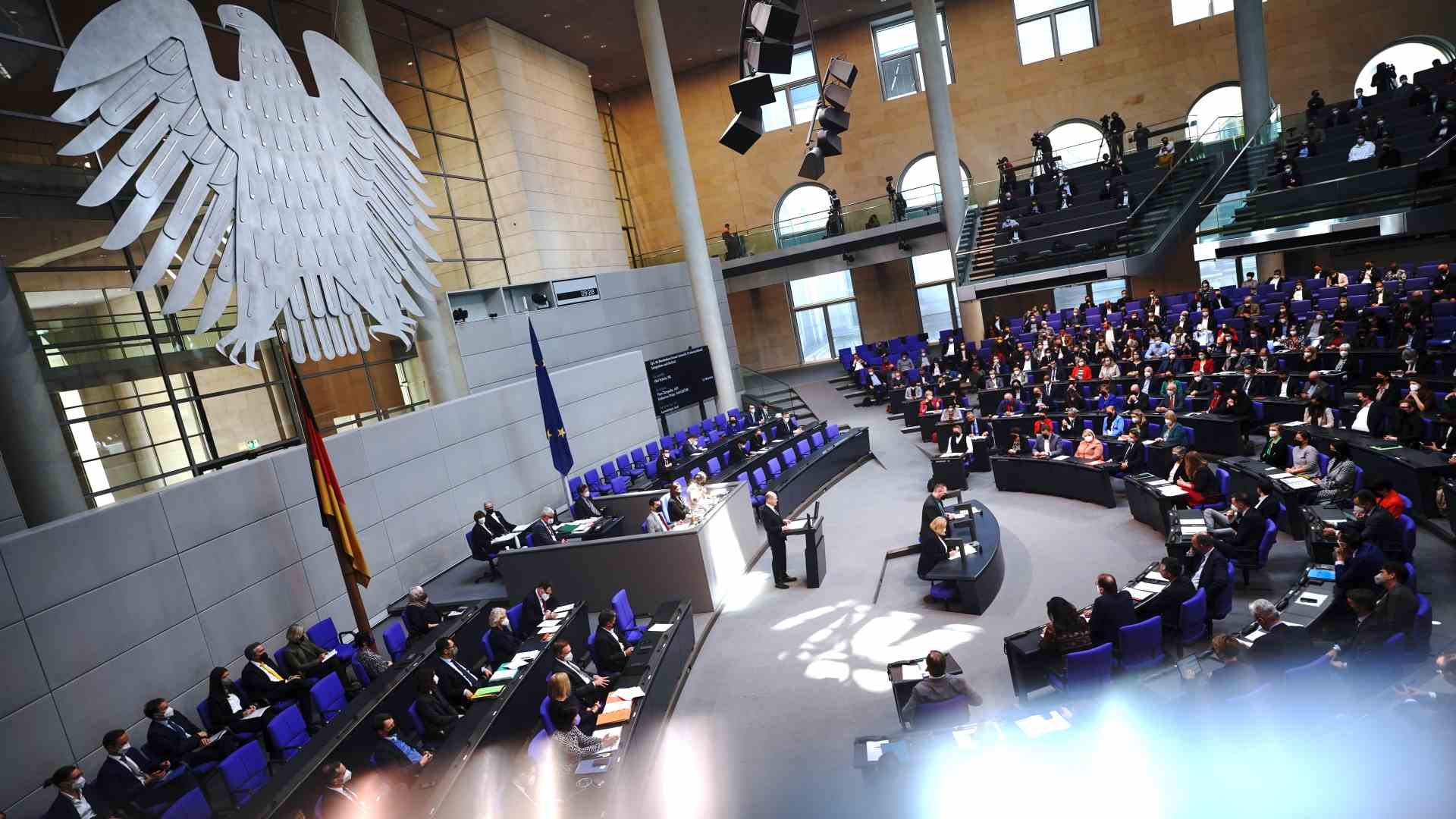Status: 05/18/2022 11:10 a.m
The Bundestag is one of the largest parliaments and currently has 138 more seats than planned. Several reform approaches have not changed anything significant – now traffic light politicians are presenting a drastic proposal.
In order to significantly reduce the size of the Bundestag in the future, according to a proposal from the traffic light groups, the overhang mandates and thus the compensation mandates should be abolished. This is what the electoral law experts of the government factions, Sebastian Hartmann (SPD), Till Steffen (Greens) and Konstantin Kuhle (FDP) write in a guest article for the “Frankfurter Allgemeine Zeitung”.
The number of seats that a party receives in the Bundestag would then be decided exclusively by the second vote, which should be renamed “list vote” – the Bundestag would always have its intended size.
Victory in the constituency no longer a guarantee for a mandate?
If a party in a federal state achieves more direct mandates in the future than it is entitled to based on the result of the second vote, then the “surplus” direct mandates with the weakest result should be cut according to the proposal.
However, so that the votes for these candidates do not expire, the voters should have a “substitute vote” in addition to their first vote. According to the proposal, they can use it to determine the candidate who is their second choice as constituency representative. If the mandate of the “overhang candidate” were to be dropped, these substitute votes would be counted instead and the winning candidate would then be elected to the Bundestag.
Unlike today, a won constituency would no longer guarantee a Bundestag mandate. The reformers therefore also want to rename the first vote to “personal vote”, and the second vote is to be called “list vote” in future.
How it is so far
The German Bundestag is elected every four years. Personalized proportional representation applies. The candidate who gets the most votes in his or her constituency always gets the mandate.
With the second vote, the voters determine how many seats the parties are entitled to in Parliament – i.e. the relative size of the parliamentary groups.
The problem arises when trying to reconcile personalized and proportional representation. So far, it has been possible for a party to achieve more direct mandates in a federal state than it is entitled to based on the result of the second vote there. That is why these additional seats are also called overhang mandates.
However, so that the relative size of the parliamentary groups is not distorted by the overhang mandates, compensatory mandates are awarded to the political competition. In this way, the Bundestag has continued to grow in recent electoral periods. The almost 140 mandates, which the Bundestag is currently larger than planned, are all overhang and compensation mandates.
The number of constituencies is also to be reduced
The proposal by the three traffic light politicians is more radical than all previous electoral law reforms – which had not been able to effectively combat the growth in parliament. Before the last federal election, the grand coalition had decided to at least slightly reduce the number of compensatory mandates. Otherwise the current Bundestag would have become even bigger.
In addition, it is planned for the next federal election to reduce the number of constituencies nationwide from 299 to 280.
With information from Lothar Lenz, ARD capital studio
Traffic light wants smaller Bundestag – proposal for electoral reform
Lothar Lenz, ARD Berlin, May 18, 2022 11:33 a.m

